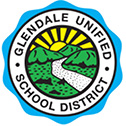- Home
- Health & Wellness
- Staying Healthy
- Hot Weather Guidelines
Staying Healthy
Page Navigation
Hot Weather Guidelines
-
When temperatures reach over 90 degrees, the risk of heat-related illnesses can increase dramatically, particularly for those who are more sensitive to heat. Prolonged exposure to excessive temperatures may cause serious conditions like heat exhaustion or heat stroke and can even be fatal.
Recommended precautions to prevent heat related illnesses:
- Drink plenty of water; don’t wait until you are thirsty.
- Avoid unnecessary sun exposure; wear a hat, preferably with a wide brim, when in the sun and use sunscreen.
- Avoid unnecessary exertion if you are outside or in non-air conditioned buildings. If you are working outdoors, take frequent rest and refreshment breaks in a shaded area.
Signs & Symptoms
-
Symptoms of Heat Exhaustion
- Heavy sweating
- Muscle cramps
- Weakness
- Headache
- Nausea or vomiting
- Dizziness
Warning Signs of Heat Stroke
- Extremely high body temperature
- Unconsciousness
- Confusion
- Hot and dry skin (no sweating)
- Rapid, strong pulse
- Throbbing headache
If symptoms of heat stroke occur, immediately call for medical assistance. Move the person to a shady area and begin cooling their body with water.
School Protocols
-
During times of exceptionally hot and humid weather, our schools modify schedules and implement precautions to protect the health of our students and employees.
When temperatures reach 80 to 94 degrees Fahrenheit, the following precautions are taken for students involved in outdoor exercise and/or events:- Provide adequate time (at least 10 minutes per hour) for water breaks, rest, and cooling for every half hour of physical activity.
- Staff should review the Confidential Health Concerns provided by Health Services for those students who may be at risk.
- Avoid prolonged vigorous activity.
When temperatures are above 94 degrees Fahrenheit, the following precautions are taken:- Follow items 1 and 2 above.
- All vigorous outdoor activity may be suspended.
- Limit outdoor activities to short periods of time.
- Watch carefully all athletes/students and especially those with health concerns.
- Limit athletic practices to short, non-vigorous work-outs.



